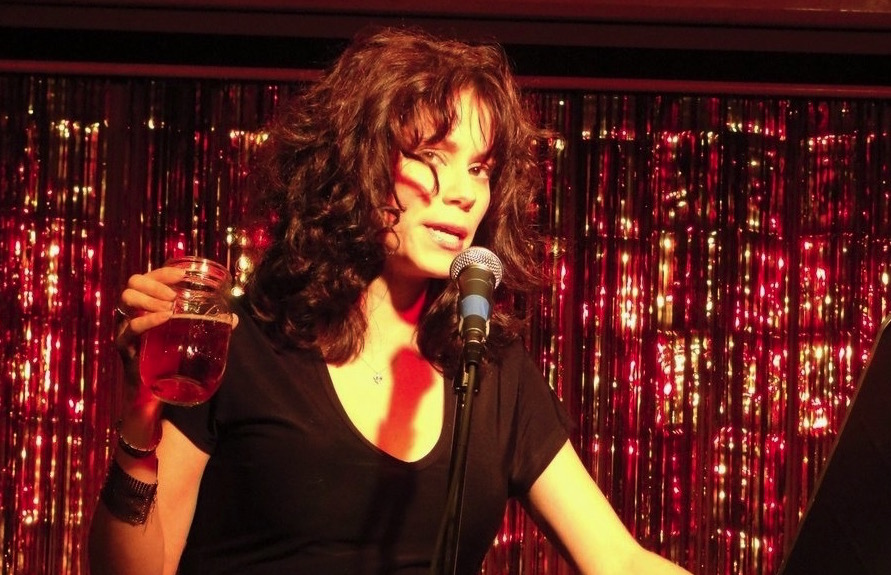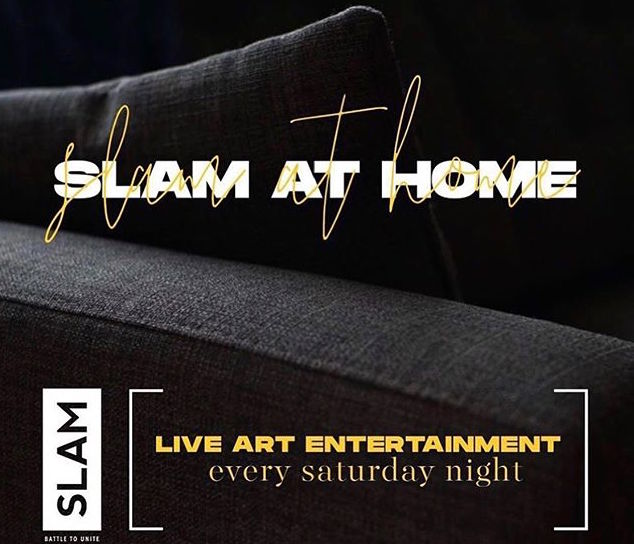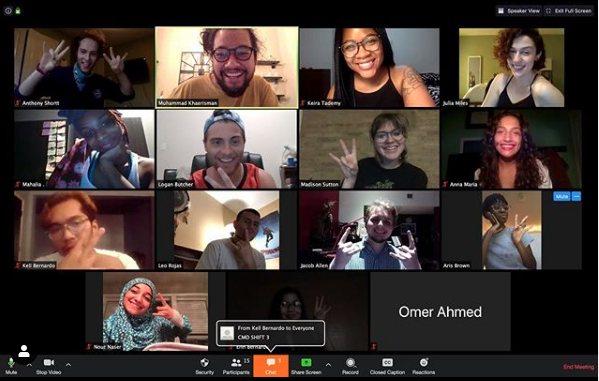Today I’m continuing my series of interviews during the quarantine with poet Carolyn Hembree. Hembree’s debut poetry collection, Skinny, was published by Kore Press in 2012. In 2016, Trio House Books published her second collection, Rigging a Chevy Into a Time Machine and Other Ways to Escape a Plague, winner of the 2015 Trio Award and the 2015 Rochelle Ratner Memorial Award. Hembree’s work has appeared in Colorado Review, Gulf Coast, Poetry Daily, West Branch, and other publications. She received a 2016-2017 ATLAS grant from the Louisiana Board of Regents and has also received grants and fellowships from PEN America, the Louisiana Division of the Arts, and the Southern Arts Federation. Hembree is an associate professor at the University of New Orleans and serves as poetry editor of Bayou Magazine.
How has this pandemic impacted you personally and professionally?
I’m a tenured associate professor, so while migrating brick-and-mortar classes online has been kind of awful, I have a job and health insurance, whereas many of my friends and students rely on our gig economy. An introvert who feels exhausted rather than invigorated by social events, I’m good nesting with my family. My mother is in a retirement facility, and a close friend has Stage 4 cancer: I worry about them.
What books are you reading while quarantined?
With the semester going, I primarily read MFA theses and workshop poems, as well as undergraduate writing in all genres. I’ve been reading Toi Derricotte and Kalamu ya Salaam in preparation for their upcoming visits to our MFA program. I’ve been rereading the General Prologue of The Canterbury Tales to think about plagues of the past, what it means to tell (or post) our stories, and what a pilgrimage would look like now. I’m also settling into the newest issue of one of my favorite literary magazines, West Branch.
If you knew five months ago what you know now, how would you have prepared for this moment?
Gone to see my mother before they closed the home to guests.
Have you attended or participated in any virtual readings? Do you think they’re here to stay or do you prefer to return to in-person readings?
Yes, I have attended and participated in virtual readings, thesis defenses, faculty meetings, and workshops. Full disclosure: I’m a Luddite with a flip phone, so virtual anything makes my list of “hateful things,” à la Sei Shōnagon’s list in The Pillow Book. As a vain person and a control freak, I like a filter that peels off ten years, a control panel to diminish or enlarge others, and an “End Meeting” button. I like that I can wear makeup, a fancy blouse, and PJ bottoms. I like being able to mute myself and black out my screen, so no one can see that I walked off during a meeting. In sum, I think it encourages me to be phony—yes, more comfortable, but comfortable comes at a price. It’s too curated. Andy Warhol said, “I want to be a machine.” Me too, but then what: How do we machine together? Will we go back to in-person readings? I think so. People need each other. Will in-person gatherings be “zoomed” or what have you? Sure. Now that we have a taste, folks will want that synchronous, “participatory” experience you don’t get from a recording.
What’s your hope for New Orleans during and after this pandemic?
My hope for New Orleans is the same as before the pandemic: equal access to education for all kids. As a teaching artist in grammar, middle, and high schools and the mother of a ten-year-old, I’ve noticed that funding, class sizes, and quality of education vary significantly from school to school. In general, I see white kids getting better stuff. I believe that doing away with admissions tests and lotteries, and opening enrollment to all students would advance our community.
Carolyn Hembree. Kelly Harris is the literary outreach coordinator for Poets & Writers in New Orleans. Contact her at NOLA@pw.org or on Twitter, @NOLApworg.






